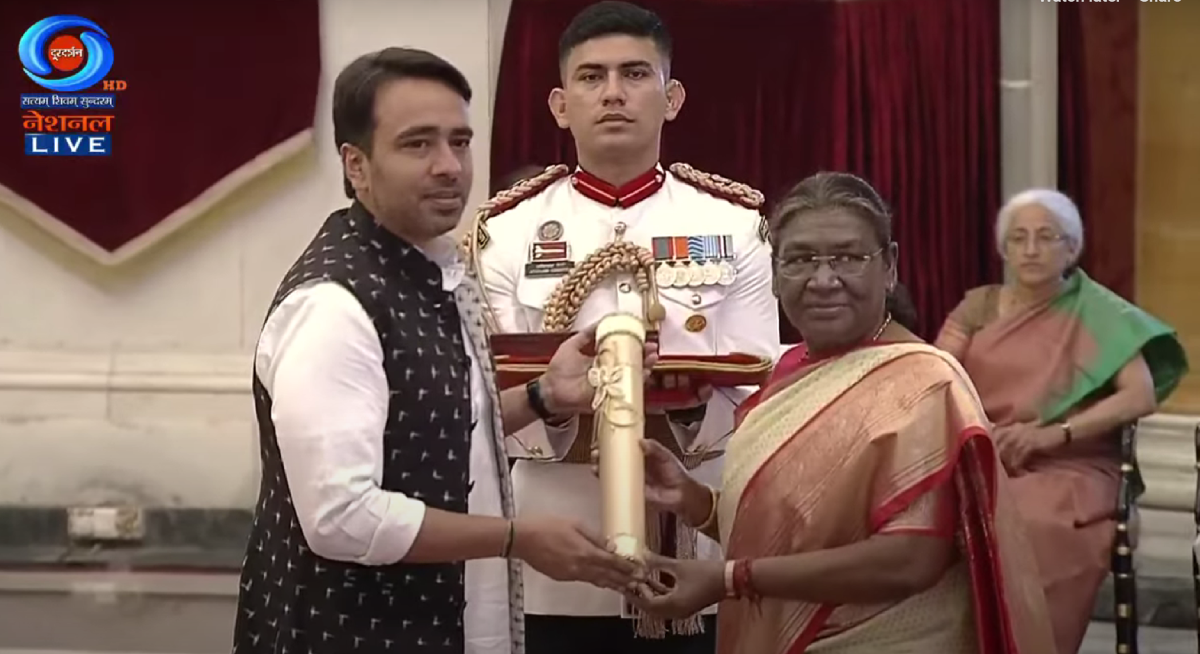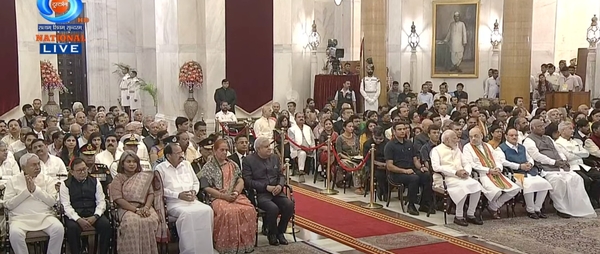The Bharat Ratna announcement on February 9, 2024, by Prime Minister Narendra Modi honouring former Prime Ministers P V Narasimha Rao and Chaudhary Charan Singh, alongside agriculture scientist M S Swaminathan, stirred nationwide discussions. While Rao's market reforms and Swaminathan's Green Revolution were acknowledged, Singh's transformative impact on the agricultural sector garnered attention.
Prime Minister Modi's acknowledgment of Singh's dedication to the nation and his pivotal role in advocating for farmers during challenging times has resonated deeply. “This honour is dedicated to his incomparable contribution to the country… His dedication to our farmer brothers and sisters and his commitment to democracy during the Emergency is inspiring to the entire nation (translated),” PM Modi posted on X on February 9 while making the announcement to confer the award on Charan Singh.
Charan Singh’s Life and Politics
Singh's humble beginnings in a peasant family near Hapur, and his subsequent journey through the national movement and into politics, epitomize the ethos of grassroots leadership. His tenure as the revenue minister in Uttar Pradesh saw landmark legislation aimed at land reforms, which had a profound impact on the agrarian landscape of the state. The highlights of Singh’s political career were the pro-farmer legislation such as the Uttar Pradesh Zamindari Abolition and Land Reforms Act, 1950 and the Consolidation of Holdings Act of 1953, with the former leading to the abolition of zamindari system in the state.
Charan Singh entered the national politics in 1971 and won the Lok Sabha election from Baghpat in 1977. He became the Deputy PM in the Morarji Desai government. Two years later, Charan Singh formed a new outfit, the Janata Party (Secular) that propelled him to the position of PM on July 28, 1979 with the support of Indira Gandhi. Soon, Gandhi withdrew support from his government and Charan Singh remained in the post until January 14, 1980.
Singh is considered as one of the biggest champions of peasants’ rights and has been termed as an ‘organic’ intellectual of the peasantry (Byres, 1988). His birth anniversary, December 23, is celebrated as Kisan Diwas.
Honouring Singh’s Legacy and the Charge of ‘Politics’

2024-30-Mar Bharat Ratna Investiture - Bharat Ratna Award 2024 awarded to Former PM Chaudhary Charan Singh
President Droupadi Murmu bestowed Bharat Ratna on P V Narasimha Rao, Chaudhary Charan Singh, MS Swaminathan, and Karpoori Thakur at Rashtrapati Bhawan on March 30, 2024. President Murmu handed over the award to Jayant Chaudhary, Rashtriya Lok Dal (RLD) chief and the grandson of Charan Singh. RLD workers celebrated by distributing sweets and paying tributes to Singh by garlanding his statue at the party headquarters in Lucknow. Farmers across north India welcomed the award and celebrated the acknowledging of the famers’ ‘messiah’ as a national icon. While the Samyukta Kisan Morcha (the collective organisation representing various farmers’ groups that spearheaded the farmers’ movement of 2020-21) appreciated the posthumous recognition of Charan Singh and MS Swaminathan with the Bharat Ratna award, it condemned the Union government for its tokenism and not addressing the agrarian crisis.
Amidst the accolades, voices of criticism have emerged, casting the recognition as a politically motivated gesture ahead of impending elections. The conferring of the Bharat Ratna is being seen as a political move by the Union government in order to appease the agrarian (especially the Jat) community given the rising distress among the agrarian classes. The alienation of agriculturalists was furthered by the three contentious farm laws that were later repealed after the long-drawn farmers’ movement of 2020-21. Given the dominance of the RLD in western Uttar Pradesh, the move is considered to be timely.
National awards are instrumental in creating icons and shaping popular consciousness. Thus, such awards, including the Bharat Ratna, are in line with the politics of the time and electoral compulsions. The conferring of the Bharat Ratna on Karpoori Thakur, a champion of social justice politics with focus on representation of intermediate castes in Bihar, is also seen as an outreach to the followers of such politics. The conferring of the award to Thakur, Advani, Rao and Singh at the same time also seems interesting as they were involved with the four major planks that dominated Indian politics in the latter half of twentieth century: Mandal, Mandir, Market and farmers’ mobilisation.
While the inclusion of Chaudhary Charan Singh in the political discourse through the investiture of Bharat Ratna in said to be marked by tactical and political necessities, it is equally important to note that his relative absence at the larger level of socio-political discourse earlier was equally political. His opposition to the Nehruvian model of development and later to the populist socialism of Indira Gandhi did not find much ideological space with the earlier regimes, thereby leading to the sidelining of his alternative model of development.
Despite the electoral or political overtones, the conferring of the Bharat Ratna provides an opportune moment to reflect on Charan Singh’s vision that is equally relevant in contemporary times. Singh wrote a number of books, articles as well as political manifestos that elucidated a coherent development strategy based on the economic and cultural specificities of post-colonial India, a vision completely different from the prevailing policy discourse of his times. He proposed alternate strategies that focused on agriculture and ensuring self-sufficient peasantry. He exhorted against the urban bias in policy making, leading to the unequal power relations between the urban and the rural, with regards to representation as well as allocation of scare resources. It was his coherent social and economic thought that guided his political action (the overlap of his thought and praxis) that places him uniquely in the political history of independent India. Thus, while political considerations may influence such recognitions, Singh's enduring legacy demonstrates that the Bharat Ratna transcends mere political patronage, recognizing individuals for their significant contributions to the nation's progress.
There is another spate of protests by farmers that is currently ongoing. While farmers from Punjab are protesting on the Punjab-Haryana border, the farmers of Noida and Greater Noida have been demanding better prices for acquired land for a long time. In this backdrop, the focus needs to shift to Singhs’ ‘agriculture first’ policy, especially with regards to pricing of agricultural goods and making farming financially viable. Thus, it is time to bring the rural-agrarian to the centre of India’s development strategy and policy making.




